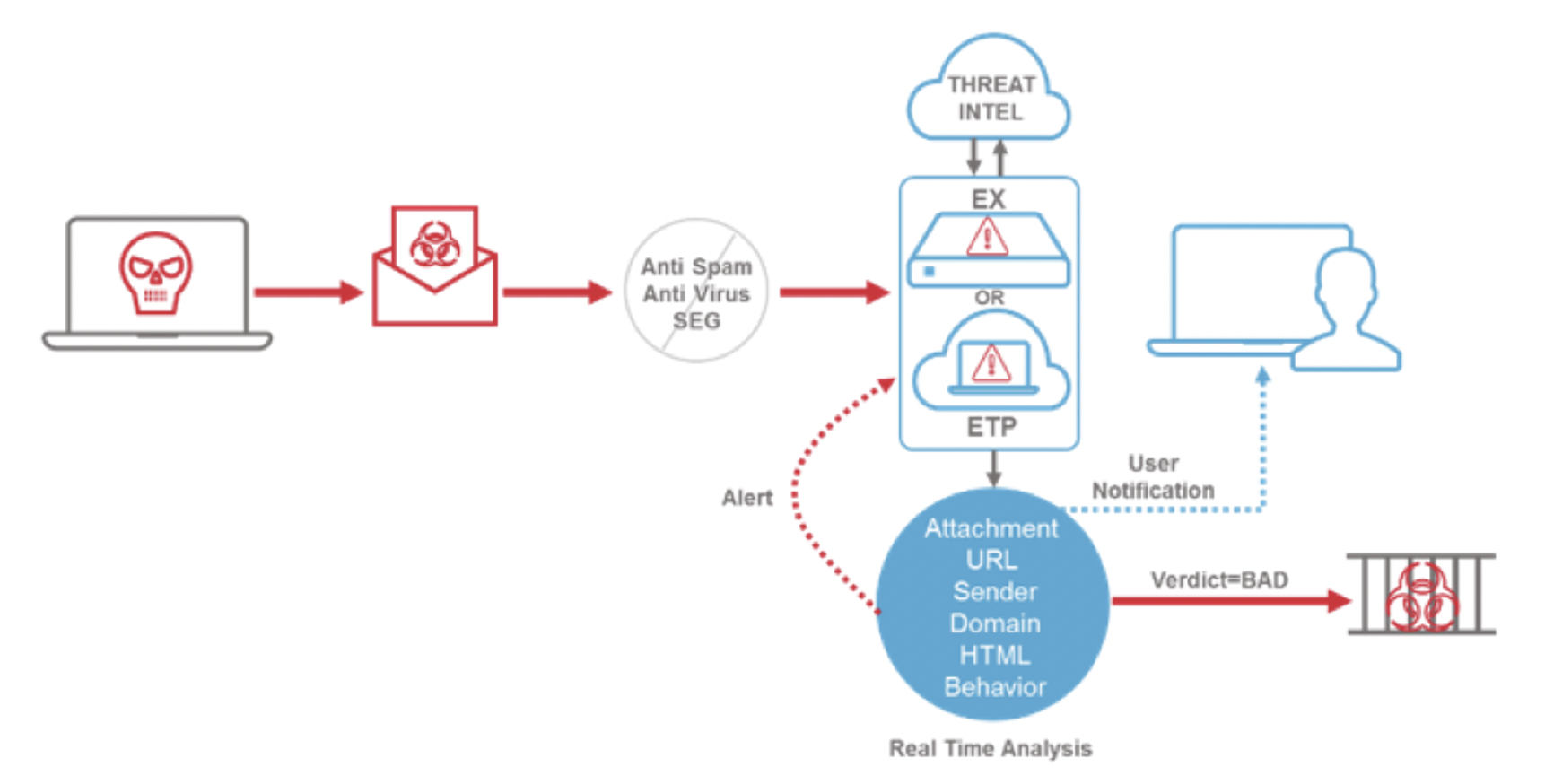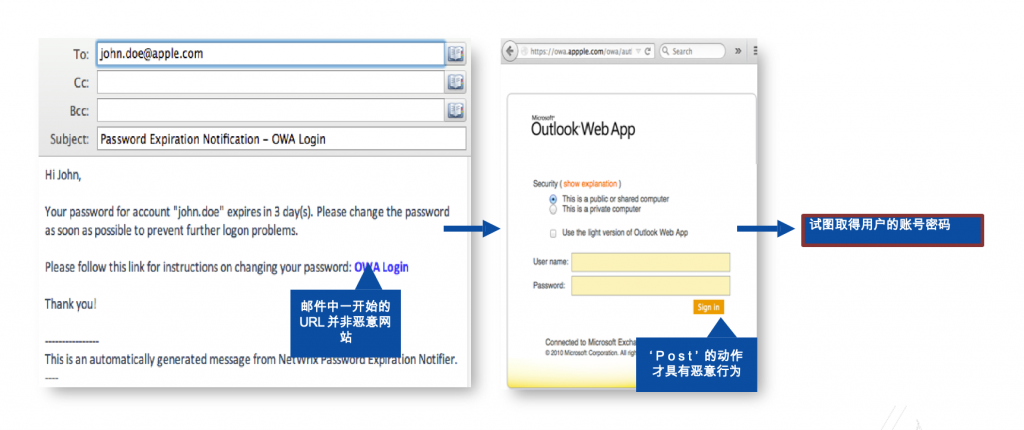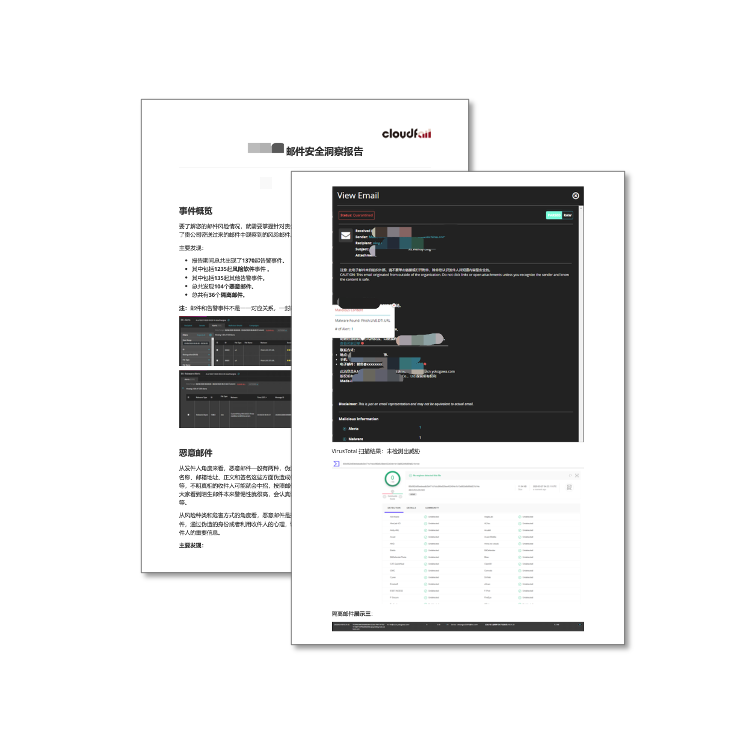Managed Email Security Service
Email is the most common threat vector used by cybercriminals. Common advanced email threats today include targeted phishing attacks, ransomware, email fraud and email intrusion, etc., Deploying Managed Email Security Service (MES) that can protect organizations and enterprises from advanced email threats, Cloudfall Managed Email Security Service (MES) can protect email systems in the first place, help enterprises and organizations build advanced email anti-virus defense, generate enterprise email threat intelligence and advanced threat protection mechanisms to identify email threats against enterprises. Avoiding and eliminating the probability of ransomware virus invasion caused by human factors. Improve the security awareness of enterprise staff and effectively reduce the rate of phishing software hits.

Managed Email Security Service(MES):
- Fights phishing emails, malicious attachments, zero-day and multi-stage attacks
- Advanced security sandboxing and intelligence
- Flexible multiple deployment options
- Phishing email simulation drills
- Unknown threat detection
- Rules and strategy best practice management
- Single security event tracking and reporting
- Periodic insight reporting
- Multiple SLAs to choose from

Several common ways of email attacks
Since email is the main way for everyday business users to receive external information, this also makes many cyber criminals weaponize email for the purpose of extortion crimes. So the following are some common ways of hiding email viruses.
- Malicious Attachments
- Malicious URL Link
- Malicious URL Link nested in an attachment
- Email spoofing
Attack Method One:
Most email phishing is a multi-stage attack pattern where the initial first attachment is not the final malicious program, but may be a script or a document containing a malicious Payload. Or the initial first attachment is dynamically downloaded and when the file is opened, it executes that malicious program.

Attack Method Two:
Credential theft, which does not use any malware, but inserts a non-malicious URL link in the email to try to obtain the user’s account password, and only has malicious behavior when the user Post.

Attack Method Three:
Using domain names similar to certain well-known websites to confuse email users, such URLs are usually free of malware, but usually these are typical phishers.

More methods of attack:
Attacks such as domain impersonation, spear attacks, encrypted archives, URLs in attachments, etc. can lead to loss of user’s passwords, leakage of confidential documents, cyber extortion and other threats to network security.
Cloudfall MES service blocks a variety of threatening emails and detects threats missed by other solutions. The detection engine examines suspicious email traffic to identify evasive traditional signature and policy-based defense attacks. Fast reading interprets and analyzes suspicious email flows, combines them with business scenarios for targeted and rapid response, notifies specific users and security managers in a timely manner, and then provides suggestions for further improvements. Unified collection of real-time data from mail servers, correlation analysis, visual presentation through security operation platform, and hierarchical real-time notifications. Best practice deployment tuning to meet compliance and audit requirements. Provide periodic email security reports and raise security awareness for all employees with phishing email simulation tools.
Our Advantages
- Save manpower and resources, simplify management complexity.
- Tiered subscriptions to save IT budget and reduce enterprise management burden.
- Customized email management rules, in line with the actual situation of enterprises.
- Visual panel data display is more intuitive, in-depth analysis, and identify the source of threats.
- Quickly locate problems and assist enterprises in dealing with threat accounts and devices.

For more detailed case studies and implementation content, please contact for:business@cloudfall.cn

